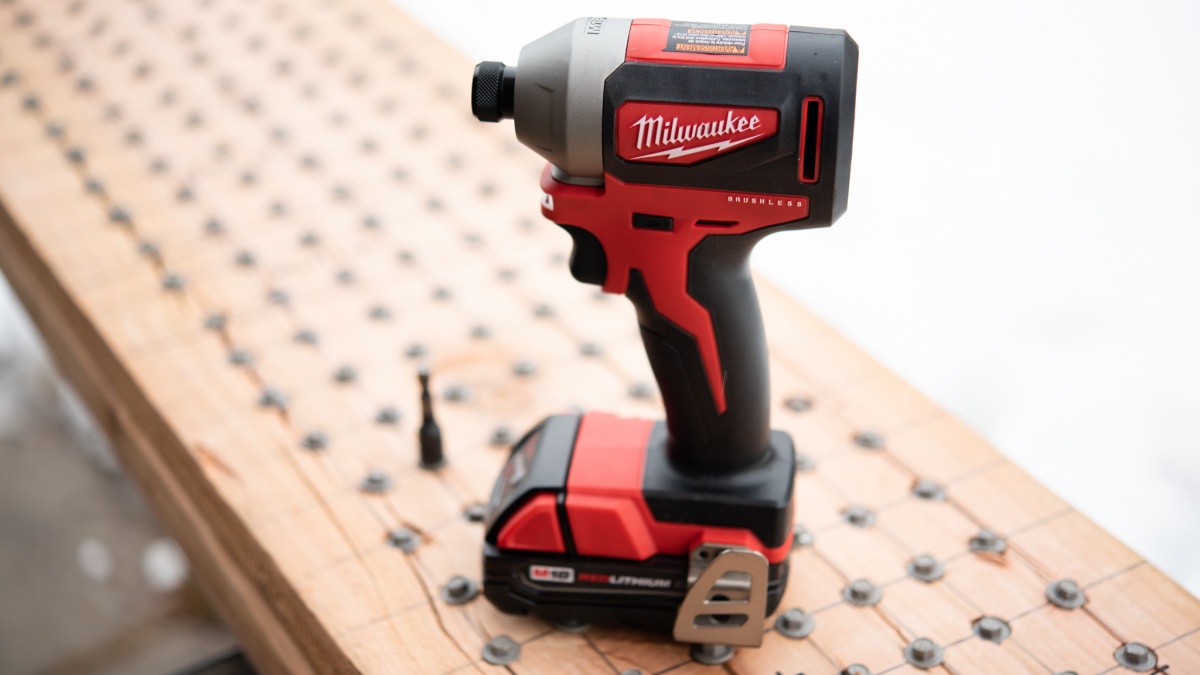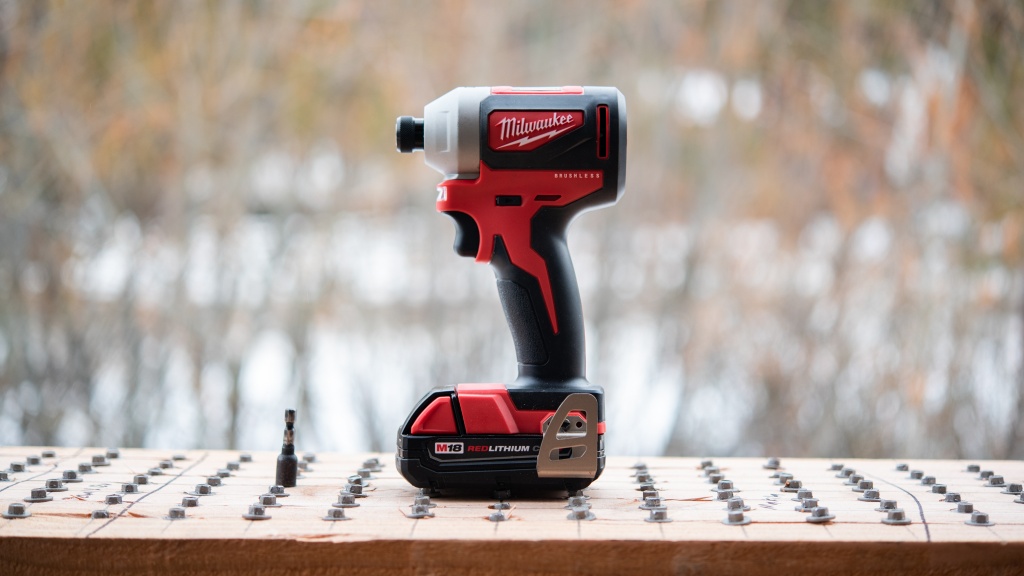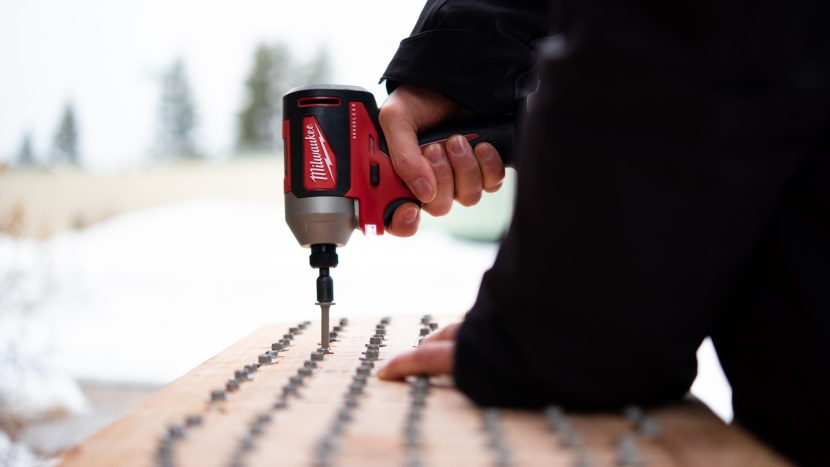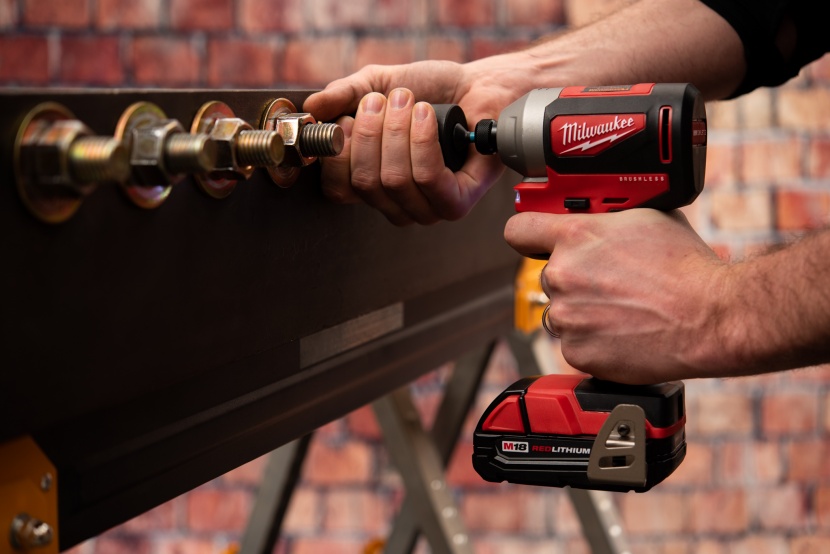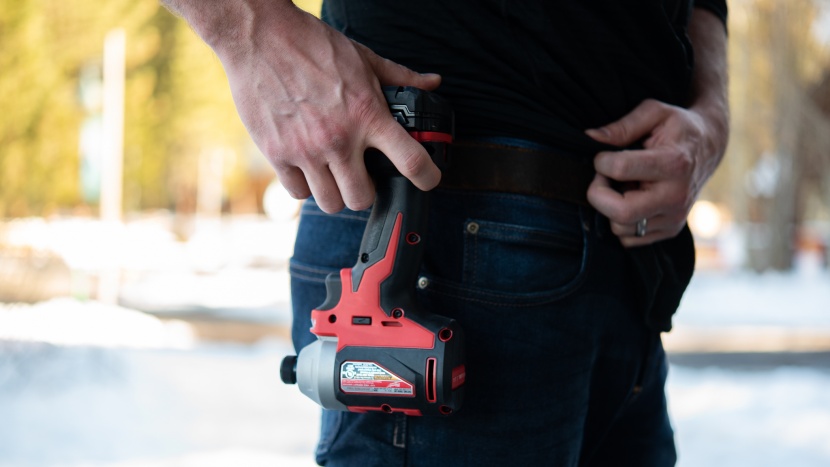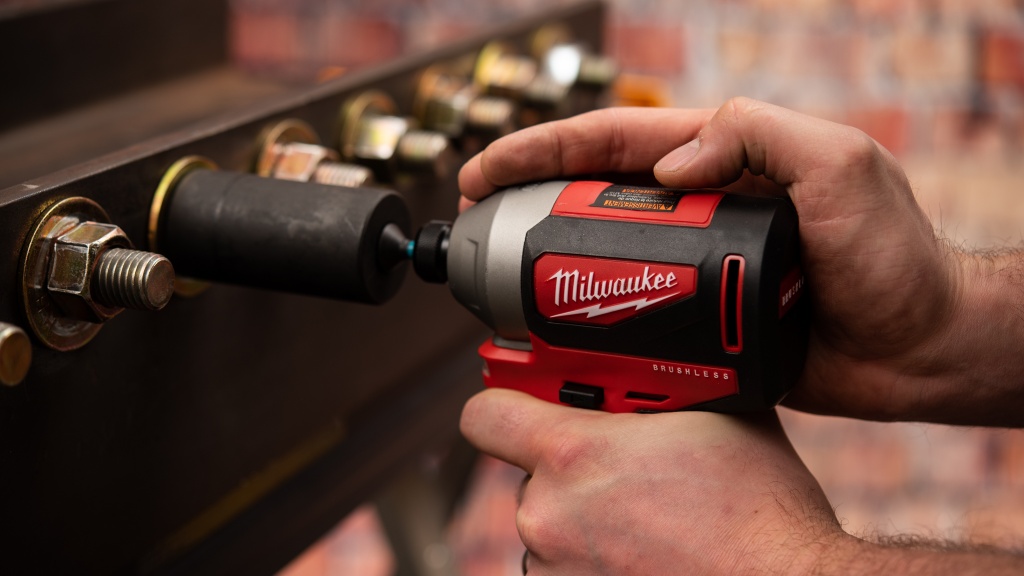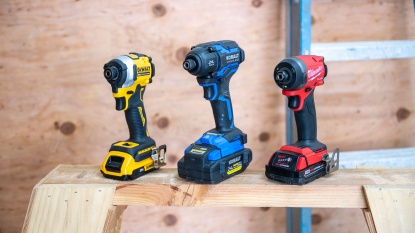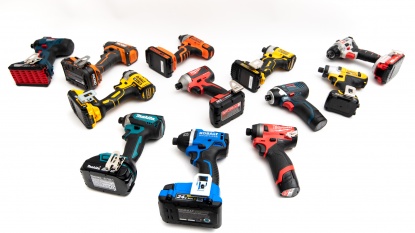
Our Verdict
Our Analysis and Test Results
We felt that its overall construction makes it handle a bit more abuse than some of the other tools and might make this a good option for someone who abuses their tools. We could see the all-metal chuck handling a fall from a ladder quite a bit better than some of its competitors with their primarily plastic construction.
Speed
It was the M18's results in our speed and torque tests that impressed us the most. We used the M18 to set ledger and lag screws into sheet goods and dimensional lumber, timed the performance, then compared the results side-by-side with other top impact drivers. The M18 did well with the first type of screw in this metric, quickly driving a 3-5/8*" ledger screw into stacked plywood and 2x12s. It only took four seconds to fully seat the screw in the stack of plywood and three seconds in the stacked dimensional boards.
The M18 was also impressively speedy in our lag screw tests, only taking 16 seconds to fully drive in a 3" long, ½" diameter lag screw to its full depth and seven seconds to remove it from stacked 2x12s.
Torque
This impact driver also proved its mettle in our torque metric. First, we measured how tight each tool could get a ¾" nut on a welded stud to compare tightening power. Next, we used a torque wrench to tighten this same fastener at increasing torque settings, checking each time to see if the M18 could still break it loose.
This impact driver could tighten one of these nuts to an average of 245-foot pounds. For comparison, the top tools overall hit 300 foot-pounds, so the M18 wasn't too far off. However, the M18 could break a nut tightened to 300 foot-pounds free in under two seconds, putting it on par with the best models we have seen. We also liked that the M18 is fairly compact, only measuring 130 mm from front to back without a bit installed.
Convenience
Unfortunately, the M18's compact size is about all we liked in terms of convenience features. You don't have any options to set different torque levels, and we didn't think the built-in light was all that great. It stays lit for a while, but you need to start the chuck rotating before it will illuminate. It lacks a quick-insert chuck, so you need to release the locking mechanism whenever you insert or remove a bit, and there is no integrated holder for an extra bit.
Battery
The M18 also delivered fairly lackluster results in our battery tests. We cycled between setting 14 of the same ledger screws and driving and removing the same lag screw for this test, awarding points based on the number of cycles completed. We started the M18 with a fully charged battery, but it only made it through 2.5 sets of this before dying — less than half of what the best models completed.
Noise
Finally, we measured average sound levels of 99 decibels for the operator when the M18 is in use, with spikes that can go even higher, making it one of the loudest to use.
Should You Buy the Milwaukee M18 2850-20?
All in all, the M18 isn't our favorite tool. But it should get most projects done without much fuss and probably can survive a drop better than some of the other drivers we tested. It wouldn't be our first choice if you are just starting out with your tool collection but it would make a solid addition to your set if you already have some Milwaukee tools that use the same battery.
What Other Impact Drivers Should You Consider?
The Milwaukee M18 is a decent tool but probably shouldn't be your first option if you are shopping on a budget, as we scored other tools higher that cost a non-trivial amount less. While the Ryobi P238 is our choice for overall value, the similar 18-volt Milwaukee M18 Fuel is only a few dollars more than the M18, but so much more efficient and effective.


